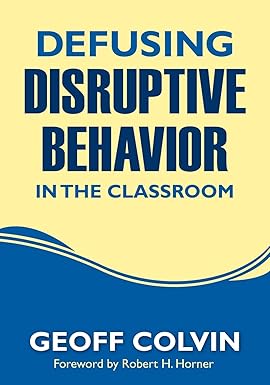Skip to Main Content

eBooks
-
-
-
 Talk to the Elephant (2023)
Talk to the Elephant: Design Learning for Behavior Change shows you how to add critical tools to your learning design toolbox to affect behavior change.
Talk to the Elephant (2023)
Talk to the Elephant: Design Learning for Behavior Change shows you how to add critical tools to your learning design toolbox to affect behavior change.
Online Videos
-
Child Anger - School Age Children
They get SO MAD! And sometimes we just don’t know why! You expect meltdowns from toddlers who are just trying to figure out their big feelings. But what about your school-age child? Is their anger normal or is there something more going on? Are there other intense feelings that your child is struggling with?
-
Eye Openers Are Mind Openers: Attention Exercises for the Classroom
Stress and distractions are major obstacles to learning at any class level. For the elementary classroom, specialized exercises called Eye Openers have been shown to dramatically improve focus and awareness among students. This program follows Dr. Martha Eddy—a widely respected educational consultant, founder of the Center for Kinesthetic Education, and the creator of Eye Openers—as she puts her movement and body coordination strategies into action.
-
Problem Solving in the Moment
Teachers can use the problem solving approach of this in-service suite with children in their classrooms. It helps children resolve social problems as they arise “in the moment.” This video is part of a series of 15-minute in-service suites on Engaging Interactions and Environments.
-
Toddlers Behaving (Very) Badly
Childcare expert Laura Amies takes on the tears and the tantrums as she teaches toddlers how to listen, have self-control, obedience and good manners.
Dr Louise Porter, Child Psychologist DVDs
Books in the Library
-
-
-
-
 The Zones of Regulation (2011)
The "Zones" concept and learning activities help children and adults manage their emotions and sensory needs while also addressing executive functioning skills and "Social Thinking" concepts.
The Zones of Regulation (2011)
The "Zones" concept and learning activities help children and adults manage their emotions and sensory needs while also addressing executive functioning skills and "Social Thinking" concepts.
-
-
Online Journals / Article
Toy Library Resources
-
Anxiety Solutions for Kids
Fifty cards with simple, fun activities for children who experience worry or anxiety from time to time - and that's every child!

 Gifted children meeting their needs (2009)
In three chapters, this live recording: describes the signs of giftedness and examines how to identify intellectual giftedness.
Gifted children meeting their needs (2009)
In three chapters, this live recording: describes the signs of giftedness and examines how to identify intellectual giftedness.
 Guiding children's behaviour (2008)
Contains sections on
Guidance versus control, Alternatives to rewards, Responding to disruptive behaviour , Questions and answers
Guiding children's behaviour (2008)
Contains sections on
Guidance versus control, Alternatives to rewards, Responding to disruptive behaviour , Questions and answers
 Defusing disruptive behavior in the classroom (2010)
Colvin offers teachers seven key behavioral principles and a range of research-based approaches for immediately defusing disruptive situations, avoiding escalation, and correcting behaviors.
Defusing disruptive behavior in the classroom (2010)
Colvin offers teachers seven key behavioral principles and a range of research-based approaches for immediately defusing disruptive situations, avoiding escalation, and correcting behaviors.
 Beyond behaviors: using brain science and compassion to solve children's behavioral challenges (2019)
Dr. Mona Delahooke describes behaviors as the tip of the iceberg, important signals that we should address by seeking to understand a child’s individual differences in the context of relational safety.
Beyond behaviors: using brain science and compassion to solve children's behavioral challenges (2019)
Dr. Mona Delahooke describes behaviors as the tip of the iceberg, important signals that we should address by seeking to understand a child’s individual differences in the context of relational safety.